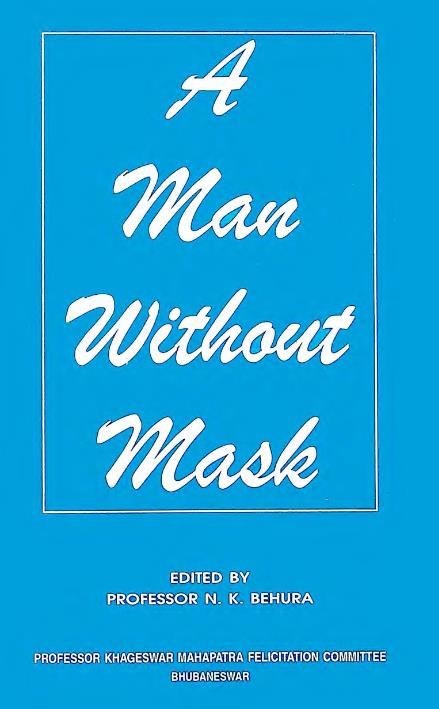In the vibrant landscape of Odia literature, NK Behura’s Man Without Mask, published in 1998, stands as a poignant memoir, encapsulating the essence of human identity, social dynamics, and personal introspection. This work is particularly notable for its exploration of Khageswar Mahapatra, a significant personality whose life and experiences provide a rich tapestry for Behura’s narrative.
At its core, Man Without Mask is an exploration of authenticity. Behura delves into Mahapatra’s life, peeling back the layers of societal expectations and personal struggles. The title itself symbolizes the quest for genuine self-expression in a world often laden with pretense. Mahapatra, as depicted by Behura, is a man who strives to live truthfully, wrestling with the masks that society compels individuals to wear. Through Mahapatra’s story, readers are invited to reflect on their own identities and the facades they may adopt in their everyday lives.
One of the most compelling aspects of the memoir is its historical context. Set against the backdrop of Odisha’s cultural landscape, Behura weaves in elements of regional history, societal norms, and the evolution of Odia identity. The memoir serves as both a personal narrative and a commentary on the broader sociopolitical dynamics of the time. Mahapatra’s experiences are paralleled with significant events in Odisha, making the book not just a memoir but a historical document that encapsulates the essence of an era.
Behura’s writing style is intimate and reflective, inviting readers to connect with Mahapatra on a personal level. Through vivid descriptions and poignant anecdotes, the author brings Mahapatra’s character to life, illustrating his triumphs and tribulations. The memoir is rich in emotion, conveying Mahapatra’s joys, sorrows, and the complexity of his relationships. Behura skillfully captures the nuances of human connection, portraying Mahapatra not just as a figure to be admired, but as a relatable individual who embodies the struggles of ordinary people.
Furthermore, Man Without Mask emphasizes the theme of resilience. Mahapatra’s journey is marked by challenges, yet his unwavering spirit and determination shine through. Behura’s portrayal highlights the importance of perseverance in the face of adversity and underscores the idea that authenticity is not always an easy path to traverse. This theme resonates with readers, reminding them of their own battles and the strength required to confront societal pressures.
In conclusion, NK Behura’s Man Without Mask is more than a memoir; it is a profound exploration of human nature, identity, and the societal forces that shape our lives. Through the lens of Khageswar Mahapatra, readers embark on a journey of self-discovery and reflection on the masks they wear. The work stands as a testament to the power of storytelling in capturing the complexity of the human experience, making it a significant contribution to Odia literature that continues to inspire and resonate with audiences today. Behura’s narrative invites us to embrace our authentic selves, encouraging a deeper understanding of not just Mahapatra’s story, but our own.
Books Info
| Books name | A Man without Mask |
| Author | NK Behura, Ed. |
| No Of pages | 236 |
| Publisher | Prof. Khageswara Mahapatra Felicitaion Committee |
| Publication | 1998 |
| Printed At | Bholanatha Press |
| Distributor | Friends’ Publishers |

